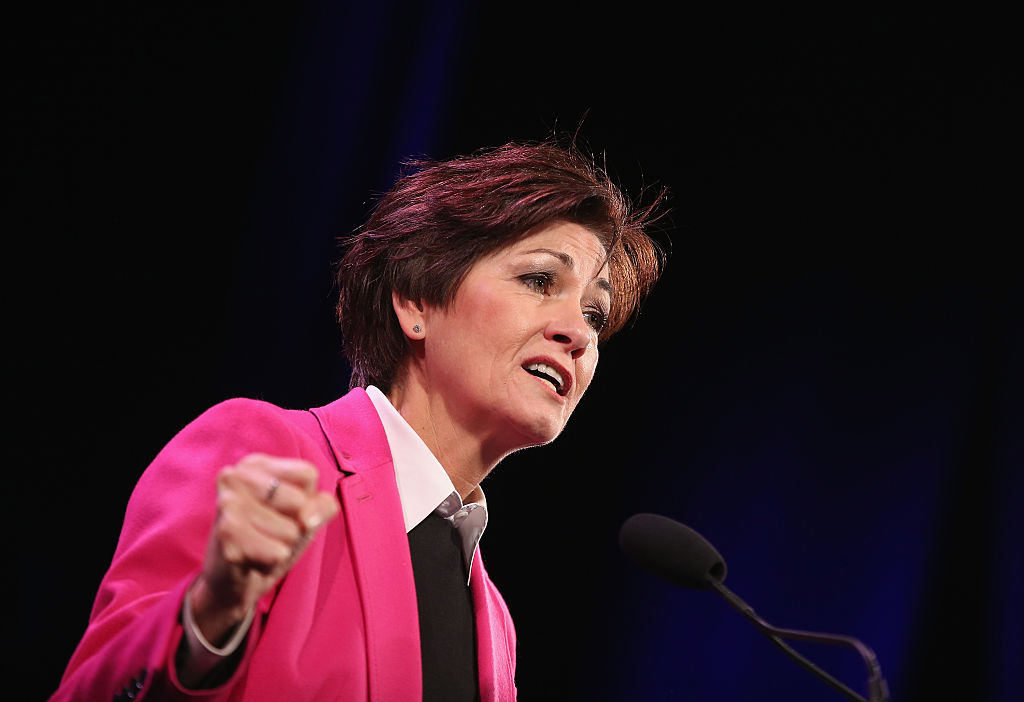Iowa governor restores some ex-felons voting rights with executive order
Anyone currently serving a prison sentence for a felony conviction will not be able to vote.

Iowans with felony convictions who have served their sentences can now participate in the upcoming presidential election.
On Wednesday, Republican Gov. Kim Reynolds signed an executive order granting most ex-cons who have completed their felony sentences the right to vote, CNN reports.
“When someone serves their sentence and pays the price our justice system has set for their crime, they should have their right to vote restored automatically, plain and simple,” said Reynolds at the state capitol in Des Moines.
Her order excludes felons convicted of first- and second-degree murder, attempted murder, fetal homicide and some sex crimes, according to the report. These individuals are still required to apply to the governor’s office to have their voting rights restored.
Read More: Despite virus threat, Black voters wary of voting by mail
According to the executive order, felons must “complete any prison probation, or parole, or special sentence” before they can register to vote. The order does not require them to make financial restitution to their victims.
“This is a cause on which so many Iowans have worked on,” Reynolds said Wednesday morning in her office, while flanked by local leaders and legislators.
Iowa was the last state with a lifetime ban on voting for convicted felons, unless they petitioned the governor for the restoration of their rights.
“We absolutely encourage people to take this day and register,” said Betty Andrews, president of the Iowa-Nebraska NAACP. “Now our work is to make sure that people are registered and understand as of today they don’t need to do paperwork, they don’t need to do anything like that. As of today they are allowed to vote.”
Mark Stringer, the executive director of the ACLU of Iowa, praised Reynold’s order.
“Iowa no longer is the only state in the country to permanently and for life ban its citizens from voting following any felony conviction,” Stringer said in a news release. “We’re relieved that the Governor’s order does not make eligibility to vote dependent on how much money a person has, that is, it’s not contingent on paying off fees and fines or other associated debts.”
The order will reportedly restore the voting rights to an estimated 40,000 people.
Have you subscribed to theGrio’s podcast “Dear Culture”? Download our newest episodes now!
